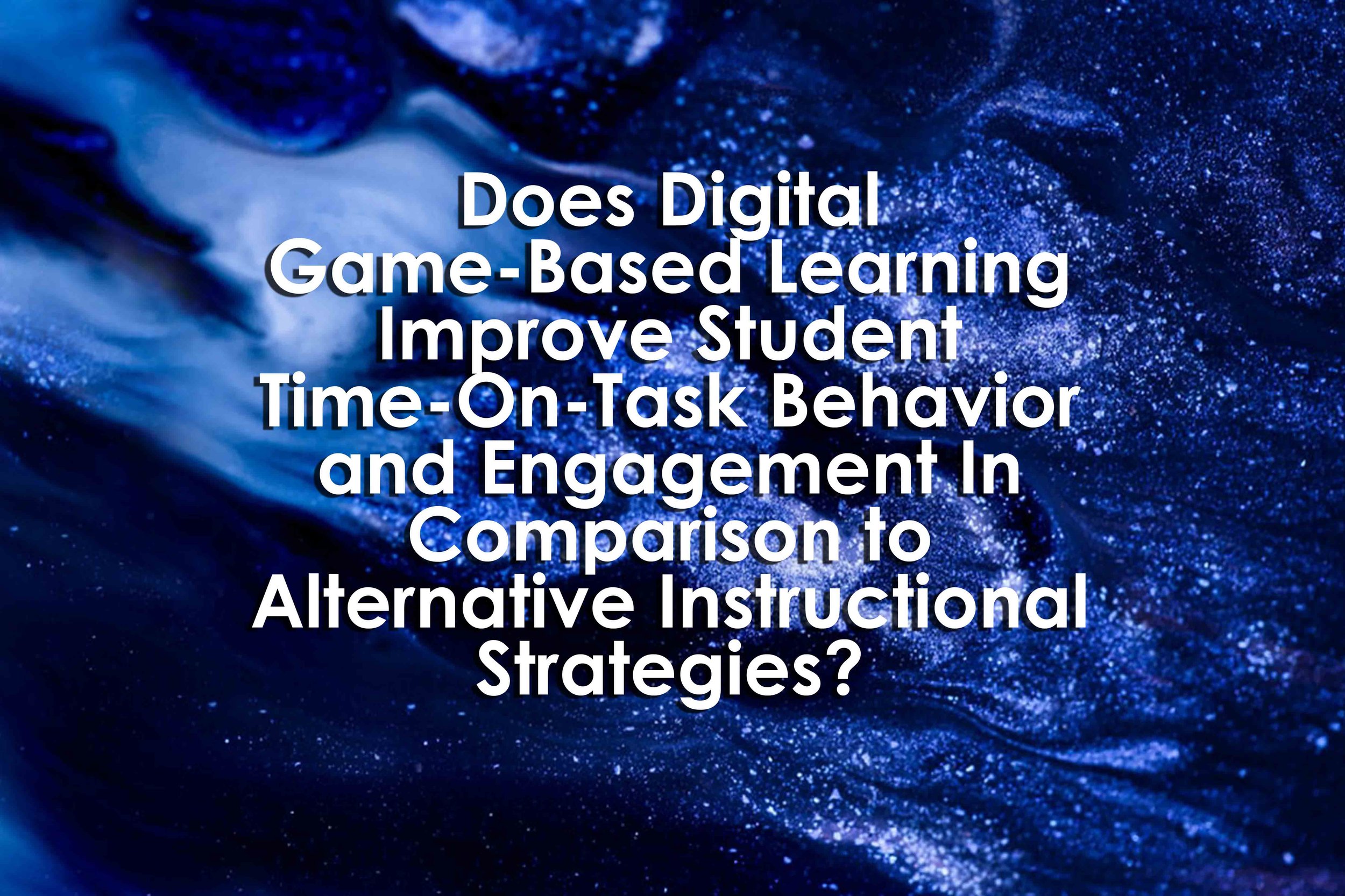Does Digital Game-Based Learning Improve Student Time-On-Task Behavior and Engagement In Comparison to Alternative Instructional Strategies?
Does Digital Game-Based Learning Improve Student Time-On-Task Behavior and Engagement In Comparison to Alternative Instructional Strategies?
Does Digital Game-Based Learning Improve Student Time-On-Task Behavior and Engagement In Comparison to Alternative Instructional Strategies?
By Ryan Schaaf
Abstract
“Digital Game-Based Learning (DGBL) activities were examined in comparison with effective, research-based learning strategies to observe any difference in student engagement and time-on task behavior. Experimental and control groups were randomly selected amongst the intermediate elementary school students ages 8 to 10 years old. Student observations and attitudinal surveys were completed after eight lesson cycles to determine which student group had a higher level of engagement and time-on-task behavior. Six of the 8 trials showed a higher student survey average in the level of student enjoyment while experiencing DGBL. Six of the 8 trials produced equal or higher class average scores for focus and attentiveness during DGBL versus alternative strategies. Seven out of 8 trials produced higher student table observation averages for DGBL. In conclusion, the data suggests DGBL can be as effective in the classroom as other research-proven instructional strategies.”
Reference
Schaaf, R. (2012). Does Digital Game-based learning improve student time-on-task behavior and engagement in comparison to alternative instructional strategies? Retrieved March 2, 2022, from https://journals.nipissingu.ca/index.php/cjar/article/view/30
Keyword
Game-based learning, games, digital games, students, SHAP, explainable alternative instruction, effective, research

